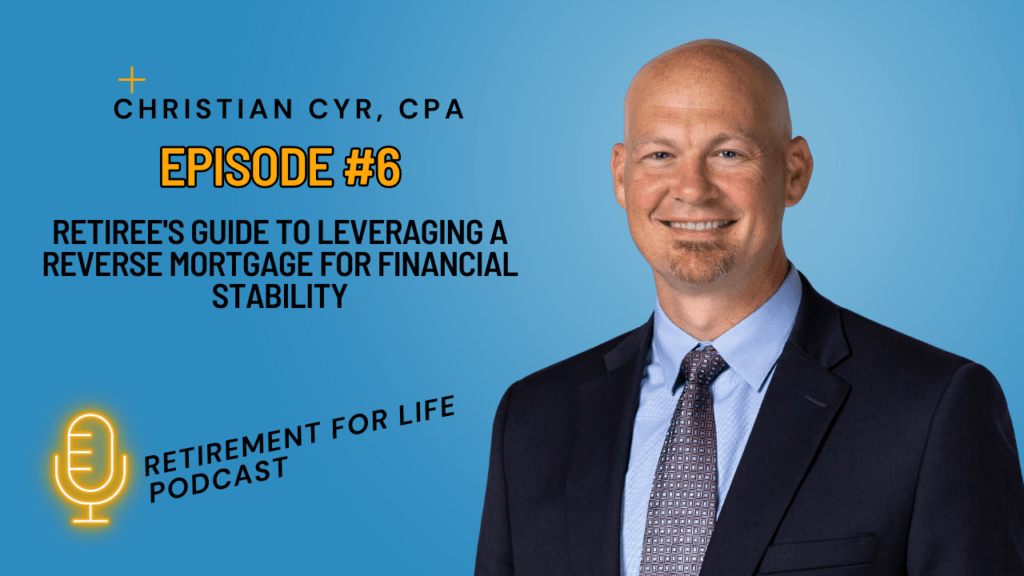When it comes to retirement, the traditional pillars of income – social security, savings, and pension – are often the go-to sources for many. However, one potentially significant asset tends to be overlooked: home equity. This episode, featuring host Chris Cyr and Michael Schwin from Longbridge Financial, addresses the complex and often misunderstood realm of reverse mortgages and their potential to unlock a more secure retirement.
The use of reverse mortgages has been shrouded in negativity for years, with many retirees dismissing them outright due to a lack of understanding or fear of the unknown. Yet, the strategic use of this financial tool could very well be the missing piece in the retirement puzzle for many. Chris and Michael engage in a candid discussion, bringing forth research and real-life case studies that illustrate the pivotal role reverse mortgages can play in retirement planning.
Reverse mortgages allow homeowners to tap into the equity of their homes, providing an income stream without the obligation of monthly payments, which can be especially appealing for those who have built up significant home equity. The loan, along with the accrued interest, is repaid when the homeowner moves out, sells the house, or passes away. Despite the benefits, psychological barriers and emotional hurdles often prevent retirees from considering this option, which is compared unfavorably to the eagerness of claiming social security benefits.
Throughout the episode, the psychological resistance to using home equity is addressed with empathy and understanding. Chris and Michael highlight that while reverse mortgages are often seen as a last resort, they can, in fact, be a proactive and strategic choice for those seeking financial stability in their non-working years. The conversation delves into the conditions under which a reverse mortgage might be most beneficial, including the impact of interest rates and the optimal timing for taking out the mortgage, typically suggested at age 65.
For retirees like Chuck and his wife, who are introduced in a case study, the decision to utilize a reverse mortgage is not made lightly. They face the difficult reality of whether to tap into their home equity to fund their retirement years. This episode doesn’t shy away from the tough decisions and emotional conversations that come with such a choice, emphasizing the need for informed financial decisions.
In wrapping up the episode, practical steps are laid out for those considering a reverse mortgage. The hosts offer guidance on the ideal timing and conditions to make the most of this financial tool. Additionally, they introduce a “Guess the Number” game, providing listeners with a fun and educational segment that reveals surprising statistics about reverse mortgages.
In conclusion, the podcast episode aims to dispel the myths surrounding reverse mortgages and encourage a more informed and strategic approach to retirement income. By shedding light on this topic, Chris Cyr and Michael Schwin help retirees and their families to reimagine the possibilities for their golden years, advocating for a future where financial stability is not just a dream, but an attainable reality.

